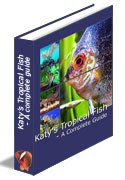One of the topics mention in previous post was the water quality in which you keep your fish, which is in the category of environment. And creating the proper environment for discus fish
involves a certain amount of work and documentation for achieving the best living conditions exotic fish needs.
The first question you need to answer about your discus aquarium refers to:
A. The tank size. This very much depends on the room you’ve got at home and your financial availability. The discus aquarium should include a deep tank as these fish feel better in lots of water, the more the water, the more stable the conditions. Hence, the discus aquarium should be at least 120 cm x 40 cm x 50 cm.
B. The position of the discus aquarium is very important precisely since the discus are very shy fish when they distrust the surroundings. It is crucial the discus aquarium is far from any loud
noises. Also, away from direct heat and light sources. Heat in excess causes plant overgrowth,
while also reducing the level of oxygen.
C. The discus aquarium should also be positioned somewhere high as these fish are disturbed by movement, and it is not advisable to cause them
undue stress.
Then, the next big issue for a discus aquarium is the stratum you place on the bottom:
A. For display purposes thin fine gravel is great to place on the bottom of your discus aquarium, but if you use it only for breeding it is best to leave the bottom uncovered. Thus, rendering your discus aquarium much easier to clean allowing little disturbance to your fish while during the mating period. As for the plants for your discus aquarium, it is best to go for the natural ones, even if the plastic may look great. Presently you can even order the plant selection for your discus aquarium by mail and have it delivered at home.
B. Since many people are concerned about the aesthetic dimension of their discus aquarium you may choose rocks and driftwood as decorations. Such items are close to the discus fish native waters where they mainly serve as shelter. Pay close attention to the kind of rocks you use in your discus aquarium. They should not contain any metal ore or other contaminants. Recommend use of rocks of the same color and texture, however, adding some diversity to
your discus aquarium, within limits, is allowed. For instance, similar texture prevents functionality problems particularly when the rocks have the same provenience, so you may have to sacrifice some of the good looks for the health of your pets. You can find more helpful tips on discus aquariums and much more on discus fish secrets available at discus-fish-secrets.com.
To Your Success!
Since so many people share the great hobby of fish breeding, it goes to
show why the market has seen a huge increase in the number of informative
publicati...
15 years ago




